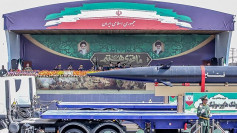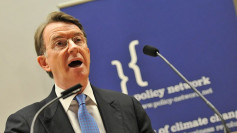Pope Francis, the 88-year-old leader of the Roman Catholic Church, died on Monday, April 21, at 7:35 a.m. local time following a cerebral stroke that led to coma and irreversible cardiocirculatory collapse, according to an official statement from the Vatican. His death came just one day after his voice was heard delivering a surprise Easter message, read on his behalf by Cardinal Angelo Comastri during Mass at Saint Peter's Square.
The Vatican confirmed that the pontiff's fatal stroke occurred against the backdrop of severe respiratory illness. He had suffered a prior episode of acute respiratory failure due to bilateral multimicrobial pneumonia, compounded by multiple bronchiectasis, arterial hypertension, and type II diabetes. His condition had deteriorated in recent months despite periods of reported improvement.
Dr. Sergio Alfieri, the chief physician who had overseen Francis' care, previously said the pope would require at least two months of rest and convalescence. He had been discharged from Rome's Agostino Gemelli Polyclinic Hospital in late March after 38 days of treatment. Francis had been admitted in mid-February with bronchitis and lung complications that quickly progressed to double pneumonia. Throughout his final weeks, he appeared publicly only through proxies and was seen sparingly even within Vatican City.
Born Jorge Mario Bergoglio in Buenos Aires, Francis had a history of medical challenges dating back to his early twenties, when part of his right lung was surgically removed due to infection. In recent years, he also underwent treatment for diverticulitis and other abdominal conditions and had declined surgery for persistent knee pain, choosing instead to rely on a wheelchair for mobility.
Cardinal Kevin Farrell said in a statement following the pontiff's death that his "entire life was dedicated to the service of the Lord and His Church." He added, "He taught us to live the values of the Gospel with fidelity, courage and universal love, especially in favour of the poorest and most marginalised."
Francis' final act as pope included receiving U.S. Vice President J.D. Vance in a private meeting, capping a 12-year papacy characterized by bold reforms, global outreach, and internal Church reckonings on social justice, clerical abuse, and institutional transparency.
The College of Cardinals is expected to begin preparations for the conclave to elect Francis' successor. The Vatican has not yet released details of funeral arrangements. Francis' death marks the beginning of the sede vacante, the period when the papal seat is vacant. The conclave will convene in Rome under tight secrecy, tasked with selecting a new pope to inherit a Church transformed by the first Jesuit pontiff's progressive and often polarizing legacy.





